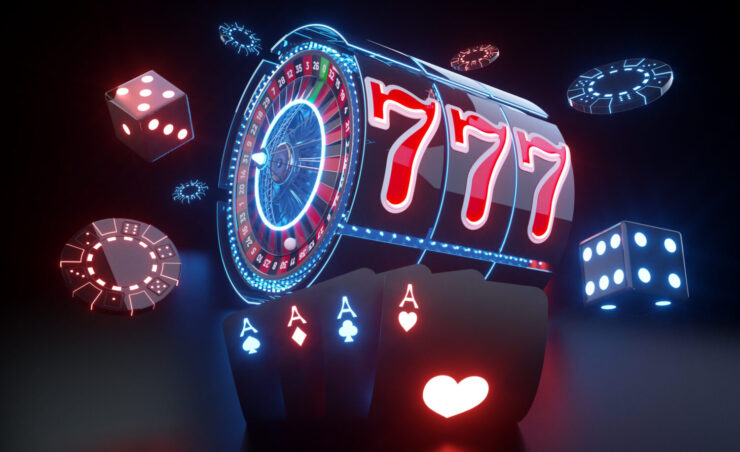In the digital age, the allure of online slots has captured the interest of millions worldwide, leading to a significant number engaging in what can often escalate into addictive behavior. This phenomenon, characterized by the irresistible urge to continue spinning despite adverse consequences, is underpinned by complex psychological principles. Understanding these mechanisms is crucial, not only for individuals seeking to navigate their relationship with online gambling but also for fostering a more informed and empathetic societal approach to addiction. This article delves into the psychology behind online slot addiction, offering insights into its causes, effects, and pathways towards more mindful engagement.
The Enticing World of Online Slots

Online slots, with their vibrant graphics, engaging themes, and the promise of substantial rewards, offer a form of entertainment that’s hard to resist. They are designed to captivate, providing a user experience that’s not just about the potential monetary gain but also the thrill of the game itself. This digital evolution of the traditional slot machine allows for accessibility and convenience, making it easier than ever to indulge in a quick game, anytime, anywhere.
The Psychology of Instant Gratification
One of the key psychological factors at play is the human desire for instant gratification. Online slots cater perfectly to this impulse, offering immediate rewards with the simple click of a button. This immediate feedback loop can be incredibly satisfying, releasing a surge of dopamine, the neurotransmitter associated with pleasure and reward, in the brain. Over time, the pursuit of this dopamine rush can lead to the development of habitual, compulsive behavior patterns, as users seek to recreate these positive feelings.
The Illusion of Control
Another critical aspect is the illusion of control that online slots provide. Players might believe that they can influence the outcome of the game through skill, timing, or strategy, despite the results being entirely dependent on random number generators. This misconception can lead to increased engagement and the false belief that a big win is just around the corner, further fueling the cycle of addiction.
The Role of Escape

For many, online slot games offer a temporary escape from the realities of daily life. Whether it’s stress, boredom, or loneliness, the immersive nature of these games can provide a welcome distraction. However, reliance on gambling as a coping mechanism can be a slippery slope, leading to an unhealthy dependence on the emotional relief it provides.
Social Isolation and Online Slots
The solitary nature of online gambling can exacerbate feelings of social isolation. As individuals spend more time engaged in virtual slots, they may withdraw from real-life interactions and responsibilities, leading to a cycle of increased isolation and dependence on gambling for social and emotional fulfillment.
Mindful Engagement: Pathways to Healthier Habits

Recognizing the addictive potential of slot online is the first step toward fostering a healthier relationship with gambling. Mindfulness and self-awareness are powerful tools in navigating this challenge.
Setting Boundaries
Establishing clear boundaries around gambling activities is crucial. This might involve setting strict limits on the amount of time and money spent on online slots, ensuring that gambling remains a leisure activity rather than a compulsive behavior.
Seeking Alternative Coping Strategies
Developing healthier coping mechanisms for stress and emotional distress is essential. Activities such as exercise, meditation, and engaging in hobbies can offer more sustainable sources of relief and fulfillment.
Professional Support
For those struggling with gambling addiction, seeking professional support can be a vital step in the recovery process. Therapy, support groups, and counseling can provide the guidance and tools needed to overcome addictive behaviors and rebuild a balanced life.
Conclusion
Online slot addiction is a multifaceted issue, rooted in the intricate interplay of psychological principles and the unique features of digital gambling. By fostering a deeper understanding of these dynamics, individuals can cultivate a more mindful and controlled approach to online slots. As society continues to grapple with the challenges of digital addiction, it is more important than ever to promote awareness, empathy, and support for those affected. Through education, prevention, and compassionate intervention, we can navigate the complexities of online slot addiction and pave the way for healthier digital engagement.

